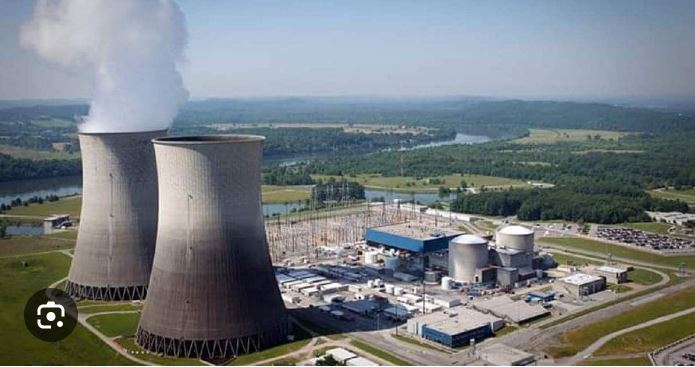The commercial operation of India’s first indigenously developed 700 MW PHWR (Pressurized Heavy Water Reactor) at the Kakrapar Atomic Power Project (KAPP) in Gujarat is a major milestone for India’s nuclear power program.
The journey of the 700 MW PHWR began in the early 2000s, when the Indian government decided to develop a more advanced and efficient design than the earlier 220 MW PHWRs that were currently in operation in India. The development of the 700 MW PHWR was a major undertaking, and it involved the participation of a number of Indian research and development institutions, including the Bhabha Atomic Research Centre (BARC) and the Nuclear Power Corporation of India (NPCIL).
The first 700 MW PHWR, KAPP-3, was built at the Kakrapar Atomic Power Project in Gujarat. The reactor was critical (meaning that it began to produce nuclear fission) in December 2021 and was connected to the grid in June 2023. KAPP-3 is expected to generate 700 MW of electricity, which is enough to power over 600,000 homes.
The successful operation of KAPP-3 is a major boost for India’s plans to expand its nuclear power capacity. The government has set a target of generating 220 GW of nuclear power by 2030, and the 700 MW PHWRs will play a key role in achieving this target.
The 700 MW PHWR is also important for India’s nuclear program because it is a more advanced and efficient design than the earlier 220 MW PHWRs. This means that it will be able to generate more electricity with less fuel, which will make it more cost-effective.
The successful operation of KAPP-3 is a major milestone for India’s nuclear power program. It demonstrates the country’s ability to indigenously design, manufacture, and operate large nuclear reactors. This is a significant achievement, as it will help India to meet its growing energy needs in a clean and sustainable manner.
In addition to the 700 MW PHWRs, India is also developing other advanced nuclear technologies, such as small modular reactors (SMRs) and thorium reactors. These technologies have the potential to make nuclear power even more affordable and sustainable.
The development of advanced nuclear technologies is a key part of India’s plans to achieve energy security and climate goals. Nuclear power is a clean and reliable source of energy that can help India to reduce its reliance on fossil fuels. It is also a major source of jobs and economic growth.
The successful operation of KAPP-3 is a major step forward for India’s nuclear power program. It is a testament to the skills and expertise of India’s scientists and engineers, and it is a sign of India’s commitment to clean energy.
Write and Win: Participate in Creative writing Contest & International Essay Contest and win fabulous prizes.
















